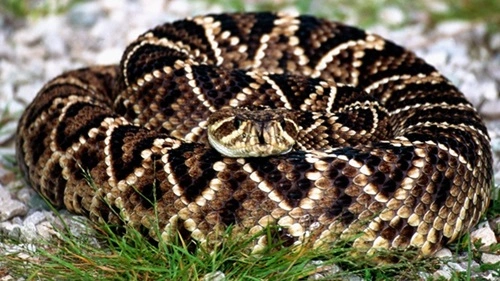Yes, it is generally illegal to kill a rattlesnake in North Carolina unless it poses an immediate threat to human safety. Rattlesnakes, including some federally protected species, are vital to the ecosystem and are protected under state and federal wildlife laws.
Legal Protections for Rattlesnakes in North Carolina
North Carolina is home to three species of rattlesnakes: the Eastern Diamondback Rattlesnake, the Timber Rattlesnake, and the Pygmy Rattlesnake. These species are critical for controlling rodent populations and maintaining ecological balance. However, their declining numbers due to habitat loss, road mortality, and human interference have led to legal protections.
1. Protected Status
- Eastern Diamondback Rattlesnake: This species is listed as endangered in North Carolina and is federally protected under the Endangered Species Act (ESA). Killing or harming this species without explicit authorization is a federal offense.
- Timber Rattlesnake: Protected under state law, it is illegal to kill this species except under specific conditions, such as immediate danger to human safety.
- Pygmy Rattlesnake: While not explicitly protected, general state wildlife laws discourage unnecessary harm to this species.
2. North Carolina Wildlife Laws
Under the North Carolina Wildlife Resources Commission (NCWRC) regulations, harming or killing wildlife without justification is prohibited. This includes rattlesnakes unless they pose a clear and present danger to people or livestock.
When Is It Legal to Kill a Rattlesnake in North Carolina?
1. Immediate Threat to Safety
Killing a rattlesnake is permissible if it poses an immediate danger to humans or pets, such as being found near homes, schools, or frequently used trails.
2. Livestock Protection
Farmers and ranchers may take action to protect livestock from rattlesnakes, though non-lethal methods are encouraged.
3. Authorized Permits
In rare cases, the NCWRC may issue permits allowing the capture or removal of rattlesnakes, especially if they are causing significant problems in populated areas.
Penalties for Killing Rattlesnakes Without Justification
Violating laws protecting rattlesnakes can lead to severe penalties, including:
1. Fines: Killing a protected rattlesnake, such as the Eastern Diamondback or Timber Rattlesnake, can result in fines ranging from $500 to $5,000.
2. Imprisonment: Federal offenses under the ESA can lead to imprisonment of up to one year.
3. Restitution Orders: Courts may require violators to pay for conservation efforts or habitat restoration.
Non-Lethal Alternatives for Rattlesnake Encounters
Killing rattlesnakes should always be a last resort. Here are safe, non-lethal ways to manage encounters:
1. Relocation
Contact licensed wildlife control professionals to safely relocate the rattlesnake to a suitable habitat.
2. Habitat Modification
To prevent rattlesnakes from frequenting your property:
- Remove debris, woodpiles, and tall grass that can serve as shelter.
- Secure gaps in fences and buildings.
- Reduce rodent populations, which attract rattlesnakes.
3. Education and Awareness
Understanding rattlesnake behavior can help reduce fear and unnecessary killings. Rattlesnakes are generally non-aggressive and will only strike when provoked or threatened.
Conservation Importance of Rattlesnakes
Rattlesnakes are apex predators and play a crucial role in controlling rodent populations, which can carry diseases harmful to humans and crops. Their decline could disrupt ecosystems, leading to increased pest populations and ecological imbalance.
Recent Legal Updates (2023-2024)
1. Strengthened Protections for the Eastern Diamondback
In 2023, federal agencies and North Carolina wildlife authorities increased protections for the Eastern Diamondback Rattlesnake, emphasizing habitat preservation and stricter penalties for harm.
2. Public Education Initiatives
The NCWRC launched statewide campaigns to educate residents about the importance of rattlesnakes and safe coexistence methods.
3. Habitat Conservation Projects
North Carolina has allocated additional funding for conservation areas to support rattlesnake populations and reduce human-wildlife conflicts.
FAQs About Killing Rattlesnakes in North Carolina
Q1. Is it illegal to kill a rattlesnake in North Carolina?
Ans: Yes, killing a rattlesnake is generally illegal unless it poses an immediate threat to human safety or livestock.
Q2. Are all rattlesnakes in North Carolina protected?
Ans: Yes, some species, like the Eastern Diamondback Rattlesnake, are federally protected, while others, like the Timber Rattlesnake, are protected under state law.
Q3. What should I do if I encounter a rattlesnake?
Ans: If it is not posing a threat, leave it alone and observe it from a safe distance. If it needs to be removed, contact a licensed wildlife professional.
Q4. Can I be fined for killing a rattlesnake?
Ans: Yes, fines can range from $500 to $5,000, especially for killing protected species without justification.
Q5. How can I prevent rattlesnakes from entering my property?
Ans: Maintain a clean yard, seal gaps in fences, and control rodent populations to make your property less attractive to rattlesnakes.


